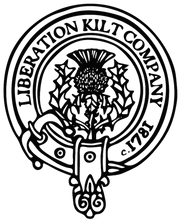Hot house world is now the most likely climate scenario, with dramatic and potentially irreversible consequences. But here’s the kicker: avoiding it wouldn’t even put a dent in the global economy. According to Nobel laureate William Nordhaus and others, achieving Net Zero carbon emissions would cost just 1–2% of global GDP per year—a rounding error compared to the cost of cooking the planet.
But climate action turned out to be too politically inconvenient. So Net Zero emissions was quietly ditched in favour of a much easier target: Net Zero credibility. At that point, the rules are whatever the strongman says they are—governance by decree, accountability optional, consequences deferred. Here's a taste of what's to come:
"With the expressed permission of the commander-in-chief, a foreign adversary may open fire on an American military installation."
In this upside-down world, anything is possible (though nothing good is likely).
A hothouse world, run by hotheads. Let that sink in.
What’s at stake is the foundational idea of democracy: that governments are accountable to the governed. Which makes this a good time to recall the real meaning of liberalism (which has nothing to do with being "woke").
Financial Times columnist Martin Wolf nailed it thus:
What liberals share is trust in human beings to decide things for themselves. That implies the right to make their own plans, express their own opinions and participate in public life.
Such an ability to exercise agency depends on possession of economic and political rights. Institutions are needed to protect those rights. But such agency also depends on markets, to co-ordinate economic actors, free media, to debate truth, and political parties, to organise politics.
Behind such institutions are values and norms of behaviour: a sense of citizenship; belief in the need to tolerate those who differ from oneself; and the distinction between private gain and public purpose needed to curb corruption.
Liberalism is an attitude, not a complete philosophy of the world. It recognises inevitable conflicts and choices. It is both universal and particular, idealistic and pragmatic. It recognises that there can be no final answers to the question of how humans are to live together. Yet there are still underlying principles.
Societies based on liberal principles are the most successful in world history.
Must we learn this the hard way?

